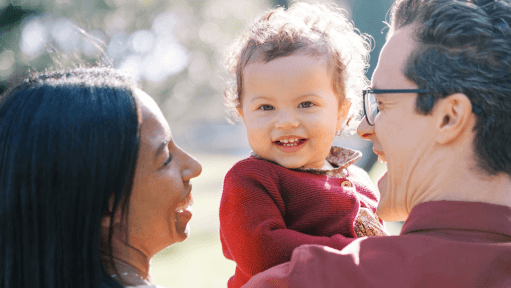
Stop Worrying About Having No Kids; UAE Has a Robust System for Adoption
In a world where love knows no boundaries and family extends far beyond bloodlines, there exists a journey of compassion, resilience, and the transformative power of unconditional love that brings together the lives of strangers, binding them in a tapestry of shared experiences and profound connection.
This is the core concept and spirit of adoption and fostering rules in the UAE, which stands as a beacon of commitment to the well-being and future of every child within its borders. Its legal framework stands as a testament to the unwavering dedication to ensuring every child's journey is guided by love, security, and the promise of a brighter tomorrow.
Within this framework, Wadeema's Law, widely recognised for safeguarding children's rights, serves as a cornerstone. The law guarantees the fundamental right to alternative care for children deprived of their natural families, whether through foster families or public/private social welfare institutions.
This legislation reflects the UAE's commitment to providing a nurturing environment for every child, irrespective of their circumstances.
Who Can Adopt a Child?
The UAE's legal framework also addresses the responsibilities of foster parents in caring for children of unknown parentage. Provisions are in place for establishing childcare homes and identifying eligible foster families capable of providing comprehensive care encompassing health, entertainment, psychological, social, and educational needs.
The Ministry of Community Development (MoCD) oversees these efforts, ensuring suitable foster families for children in need. Criteria for prospective foster parents include being Muslim, Emirati citizens, residing in the UAE, being at least 25 years old without a criminal record involving moral turpitude, being free from infectious diseases or psychological disorders, and having the financial means to support their family and the foster child.
Moreover, foster parents must commit to providing proper treatment, upbringing, and care for the child's health and well-being.Inclusivity is also emphasised in fostering regulations, extending eligibility to single women, including divorced and widowed women, provided they meet specific criteria.
Applicants must provide essential documents, including an Emirates ID card, passport copy, family book copy, salary certificate, certificate of good conduct, and proof of home ownership. Various authorities across different emirates in the UAE facilitate childcare homes.
Additionally, the UAE implements child-sponsoring programs to support orphans, both domestically and internationally, through initiatives operated by entities like the Emirates Red Crescent Authority and Zakat Fund.
Recent amendments to Federal Law No. 28 of the 2005 UAE Personal Status Code and Decree-Law No. 52/2023 introduce significant changes aimed at enhancing the welfare and protection of fostered children. These amendments modify the roles, responsibilities, and rights of foster parents, particularly concerning educational tutorship, guardianship, and documentation.
Revisions to Article 148 grant the fostering mother educational tutorship over the fostered child in the child's best interest, with dispute resolution mechanisms in place to ensure timely resolution while prioritising the child's well-being.
Article 157 addresses custody of the fostered child's passport and evidential documents, emphasizing the child's autonomy upon reaching adulthood and empowering the woman fosterer to maintain essential documents.
Changes to Article 250 specify conditions under which wills may be made to heirs, ensuring flexibility and adherence to the best interests of all parties involved.
The recent amendments to Federal Law No. 28 of 2005 UAE Personal Status Code, introduced through Decree-Law No. 52/2023, signify the UAE's continuous commitment to enhancing the legal framework surrounding fostering and adoption.
By addressing crucial aspects such as educational tutorship, custody of documents and testamentary matters, these amendments strive to ensure the holistic well-being and protection of fostered children while upholding the principles of justice and guardianship within the UAE's legal system.
(The writer is a legal associate at Dubai-based NYK Law Firm)
For any enquiries or information, contact ask@tlr.ae or call us on +971 52 644 3004. Follow The Law Reporters on WhatsApp Channels.